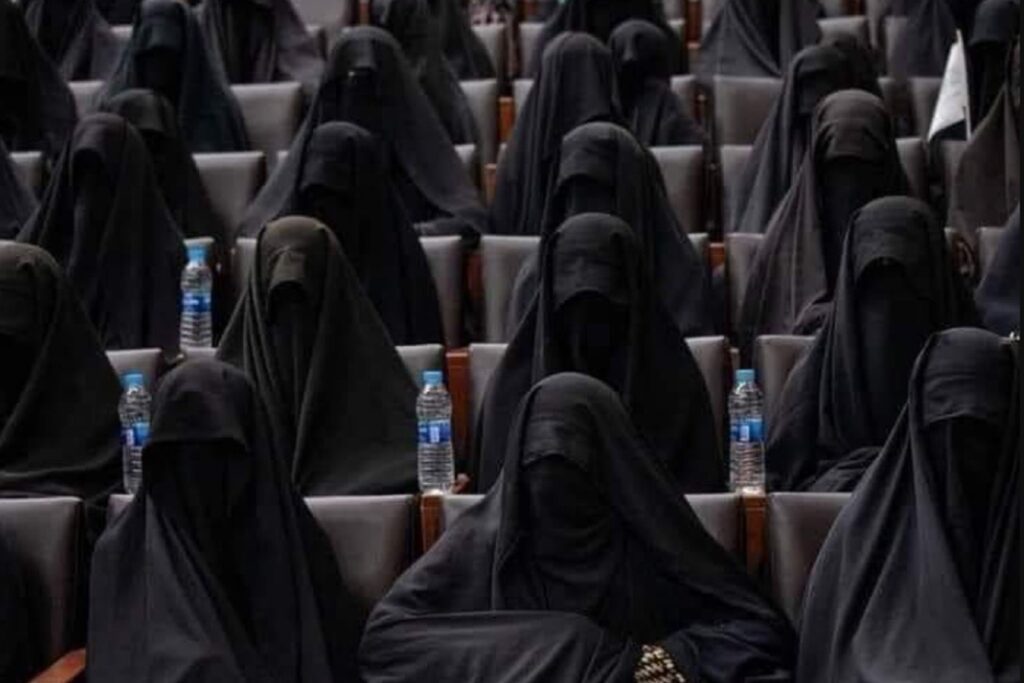Taliban officials in Afghanistan have issued a ban on women’s voices and bare faces in public under a new set of morality laws.
Specifically, women are now forbidden to sing, recite poetry, speak aloud in public or show their faces and bodies.
In what’s being called a Vice and Virtue decree, the Taliban’s reclusive supreme leader used a 35-article document greatly restricting personal freedoms and religious practices on everyday aspects of life such as transportation, music, shaving, celebrations and women’s public presence.
Article 13 relates to women, stating that it is mandatory for a woman to veil her body at all times in public and that a face covering is essential to avoid temptation and tempting others.
Women are required to veil themselves in front of all male strangers, including Muslims, and in front of all non-Muslims to avoid being corrupted, the article says.
And, a woman’s voice is deemed intimate, so therefore, cannot be heard singing, reciting, or reading aloud in public. It is also forbidden for women to look at men they are not related to by blood or marriage and vice versa.
These restrictions, enacted Wednesday, are the latest crackdown on women’s rights in the country, with millions of Afghan women and girls already struggling to survive.
‘A stain on the global conscience’
The Taliban regained power in Afghanistan three years ago and have continued to push a strict interpretation of Islamic Sharia law.
Just two weeks ago, about 1.4 million girls were banned by the Taliban from accessing any education beyond the age of 12– access to university was banned in late 2022. The move has advocates concerned the situation will increase the already high levels of child labor and early marriage.
Since regaining power, the Taliban have issued at least 70 decrees and directives that directly target the autonomy, rights and daily lives of women and girls, according to UN Women.
“Women in Afghanistan are being obliterated—no voice, no face, no existence. The Taliban’s latest decrees are nothing short of barbaric: women banned from singing, reciting poetry, or even speaking aloud in public. Their faces and bodies must be hidden from the world,” writes Afghan-born British social activist Shabnam Nasimi, on Instagram.
“This isn’t just an Afghanistan tragedy; it is a stain on the global conscience, brought about by our failure to act.”
Last month, a UN report stated the Taliban was contributing to a climate of fear and intimidation among Afghans through edicts and the methods used to enforce them.
“Given the multiple issues outlined in the report, the position expressed by the de facto authorities that this oversight will be increasing and expanding gives cause for significant concern for all Afghans, especially women and girls,” said Fiona Frazer, the head of the human rights service at the U.N. mission in Afghanistan.


